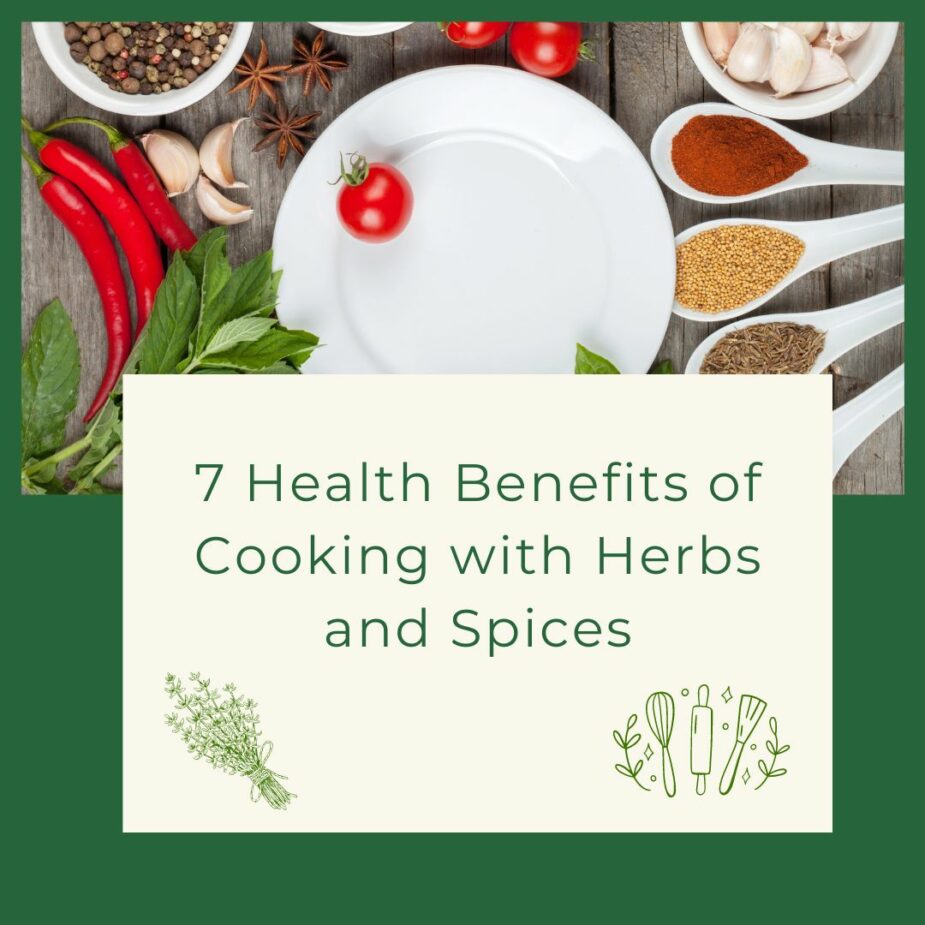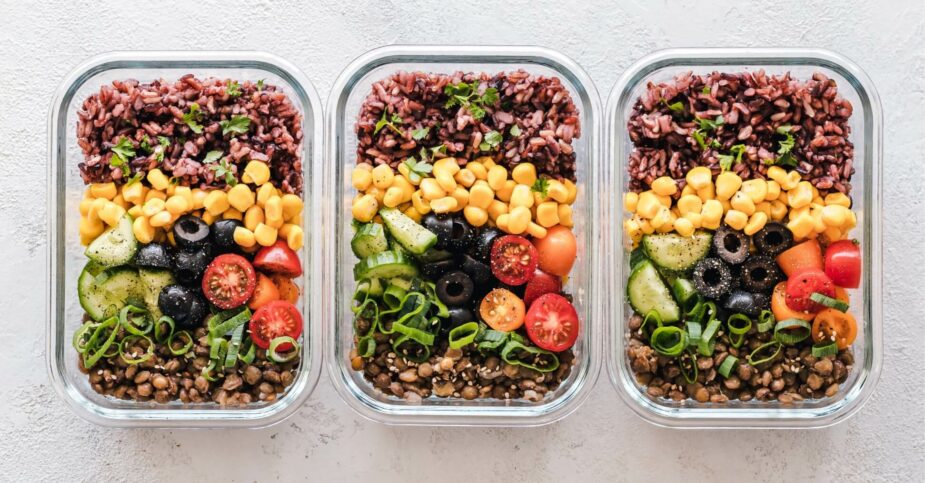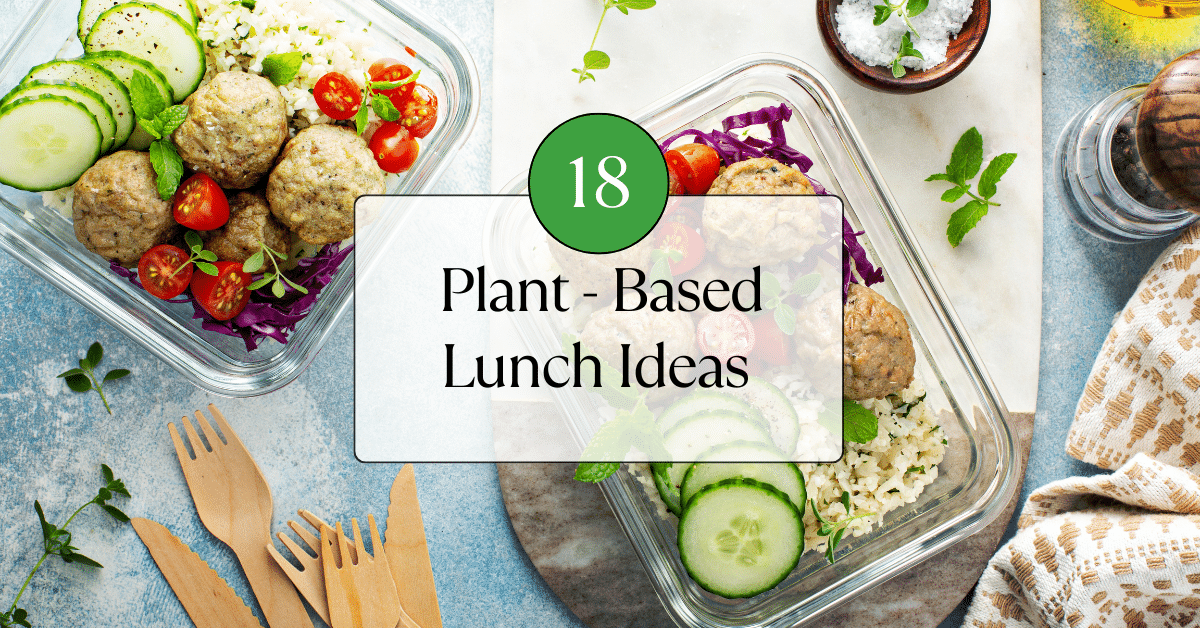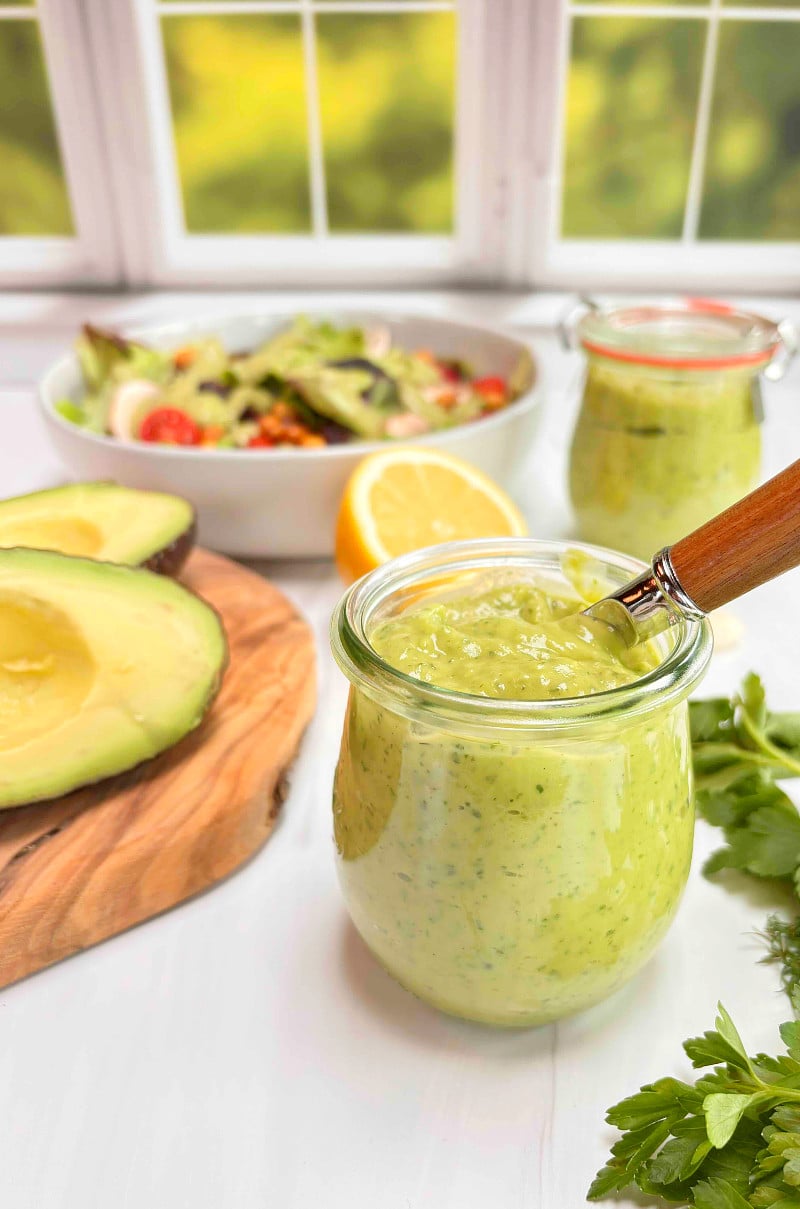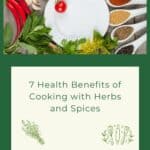Did you know that all of those little bottles of spices and herbs in your pantry are secret superheroes in your kitchen? Not only do they add little – or sometimes big – bursts of flavor and aroma to our food and can transform the most basic ingredients (think about a plain old tomato sauce) into culinary masterpieces, but they are packed with nutrition too.
But did you know that beyond that flavorful magic, all those little jars hiding in your pantry or plants growing on your balcony are packed with nutrition? Yep, herbs and spices are bursting with health benefits that go beyond just making your taste buds dance.
As someone who’s both a culinary nutritionist and a registered dietitian, I love how these flavor-packed gems not only bring flavor to our meals but can also support our well-being.
In this post, we’re diving into the science-backed wonders of herbs and spices and debunking a few myths along the way. We’ll focus on how adding these seasonings to your everyday cooking can support your health.
So, let’s see how our next kitchen adventure might get a whole lot tastier and healthier!
First up: Let’s take a quick look at the key players. We often use “herbs” and “spices” interchangeably, but there are a few key differences.
What is the Difference Between an Herb and a Spice?
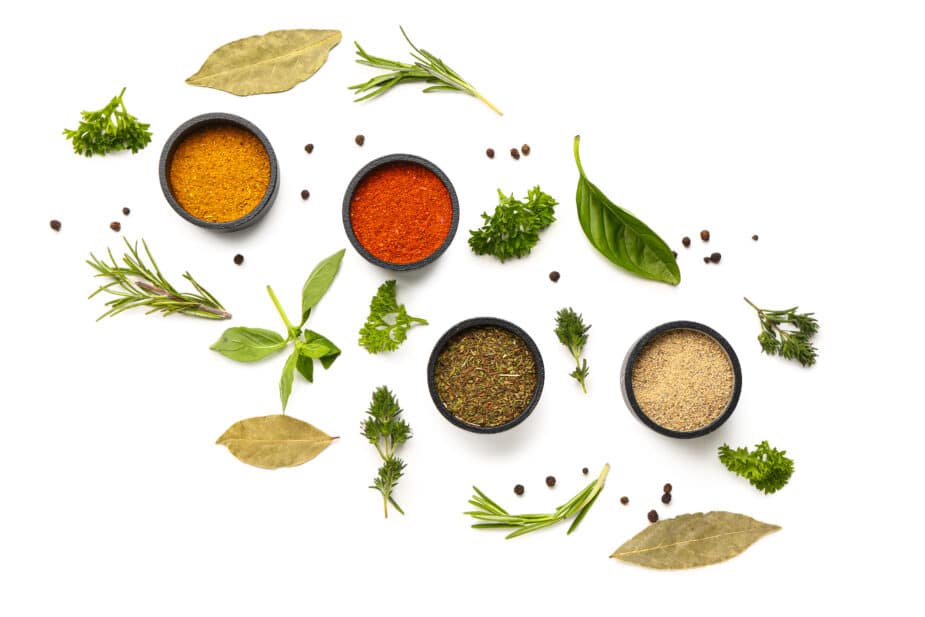
We might talk about herbs and spices as if they are the same thing, but there are some key differences.
Both herbs and spices come from plants and are primarily used to add flavor and aroma to food, but there are some key differences.
— Herbs come from the leaves and stems of a plant. They can be used fresh or dried.
— Spices, on the other hand, come from seeds, roots, flowers, or even the bark of a plant. They are typically used in their dried form and in much smaller amounts than herbs.
Of course, things are not black and white. Some plants may be both an herb and a spice. Cilantro and dill are two great examples. Their seeds are dried and used as a spice, whereas the greenery and stems are herbs.
Now that we know what herbs and spices are and how they’re different, let’s dive into the good stuff: how they have health benefits galore.
Can Using Herbs and Spices Support Your Health?
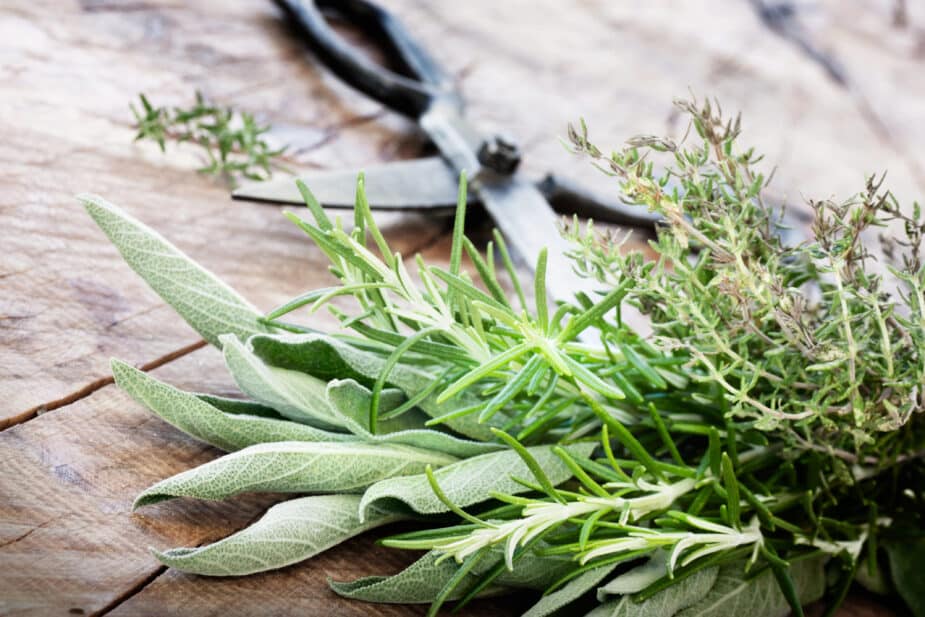
Just a teaspoon or two of basil and oregano might whisk you away to the rolling hills of Tuscany and streets of Italy, while a dash of cilantro, garlic, and chili powder might just make you feel like you are watching the sun go down over the red rocks of the southwest.
In addition to using herbs and spices to add flavor to food, they have also been used for centuries to help manage illnesses – everything from stomach upsets, and headaches, to more serious concerns.
While many of their uses have been passed down by word of mouth and tradition, what is exciting now is that there is some research emerging that shows us that adding them to our diets may very well provide some health benefits!
Take the Mediterranean diet, for example. While it emphasizes eating more fruits and vegetables, the role of herbs often gets overshadowed. Yet, they are just as important as they add a plethora of nutrients.
Herbs and spices are concentrated sources of antioxidants and other healthy nutrients. These are the nutrients that give color and flavor to fruits, vegetables, and herbs and also provide health benefits.
Think about hot red peppers. The capsaicin in them gives them their bright color and is what makes you sweat a bit after eating them, right? Well, capsaicin is also an antioxidant and may help boost your metabolism and lessen acid buildup in your stomach.
Let’s dive into a brief review of the science-backed benefits these culinary gems could potentially provide for our health.
While you’re reading, keep in mind this review is focused on adding herbs and spices to your everyday cooking, not taking them in the form of supplements.
If you are interested in supplements, talk with your registered dietitian. While I am a registered dietitian, I’m not your dietitian!
Herbs for Memory
One of the main reasons we think people struggle with memory as they age is due to a build-up of plaques in our brains.
These plaques interfere with our communication system and blood flow to the part of the brain that forms memories.
While more research is needed to really understand how it works, we know that many of the nutrients and chemicals found in herbs and spices may help clear out plaques. Some may even prevent those plaques and tangles from ever forming, to begin with!
Another way herbs may help with protecting our memory is by reducing inflammation and oxidative stress in our brains.
Tamping down inflammation helps to keep blood flowing and delivers important messages to our brains.
Preventing oxidation works differently. It is like putting a protective sealant over the cells in our brains, the same way you may apply a sealer to your deck to prevent it from water damage.
The antioxidants in herbs work the same way in our brains, protecting those precious cells from oxidative damage that can impact our memory and cognitive function.
Some of the herbs that you can include regularly in your meals that may help with memory and support brain health include:
*Keep in mind that we’re talking about using herbs and spices in regular amounts in cooking – not about taking supplements. If you are interested in learning about supplements, talk with your own dietitian.
Herbs and Spices for Heart Disease
In much the same way that the nutrients in herbs may reduce plaque buildup and inflammation in our brain, using herbs can help reduce our risk of heart disease. The nutrients in herbs may
- Lower LDL (bad) cholesterol levels
- Lower total cholesterol levels
- Reduce plaque buildup in our arteries
- Lower inflammation in our blood vessels.
One example comes with a little heat! Chili peppers are rich in antioxidants and a chemical called capsicum, which makes those chili peppers so darn hot. This spicy chemical also has anti-inflammatory and possibly metabolism-boosting benefits.
The compound in turmeric, curcumin, has some protective effects against heart disease. Some research has found that small amounts of curcumin were able to lower total and LDL cholesterol levels and increase HDL levels (the “good” cholesterol) in people with coronary heart disease. Even better – smaller amounts were more effective than larger ones, so a little goes a long way.
Garlic has a long history of being used to reduce the risk of heart disease. Research has shown it may help by keeping your arteries flexible, therefore increasing blood flow through them.
The other way herbs and spices can help combat heart disease risk is by empowering us to reduce our use of salt when cooking. While salt can bring out the flavors in our food, consuming too much has been linked to high blood pressure. High blood pressure can increase your risk of heart disease and strokes.
The herbs you can add to your meals that may help reduce the risk of heart disease include:
- Chili peppers
- Turmeric
- Curcumin
- Garlic
- Parsley
Herbs for Bone Health
As we age, we lose bone mass. This happens in both men and women, but women are more susceptible to a significant loss of bone after menopause. While it has been clear that diet and exercise can help strengthen our bones, the role of herbs in our diet is less well-established.
However, because of their rich nutrient content, especially nutrients like potassium, fiber, vitamin K, and polyphenols, including herbs and spices in our diets may be helpful and play a part in reducing bone loss.
Our bones are living tissue, just like our skin and muscles. We are constantly remaking bone tissue.
Our bones stay healthy when the amount of bone tissue being rebuilt is equal to the amount being broken down. However, if more bone tissue is lost than replaced, bone density decreases, which can lead to osteoporosis.
While dairy products and vitamin D are most often associated with increasing bone strength, eating more fruit, vegetables, and herbs can help increase or maintain bone density.
Adding some of these herbs to your recipes may help support your bone health, including:
- Parsley
- Sage
- Rosemary
- Thyme
- Garlic
Herbs that Support Our Immune System
Because of their antioxidant properties, many herbs we use daily may help support our immune system. Both cooked and uncooked herbs and spices have been shown to reduce inflammation and strengthen our immune response.
Rosemary is a well-known antioxidant, and it is often added to foods to help extend their shelf-life. Those antioxidant properties also help reduce inflammation and strengthen our immune system.
Some of the compounds in garlic also help stimulate our immune system and reduce oxidation and oxidative stress.
Some of the most well-researched herbs and spices that you can add to your meals to support your immune system are:
- Rosemary
- Turmeric
- Black Pepper
- Lemongrass
- Parsley
- Thyme
- Ginger
- Garlic
Herbs for Gut Health
While this may sound counterintuitive, some of the spiciest herbs may have the biggest impact on supporting our gut health. Some evidence has suggested that chili peppers and black pepper are especially helpful.
Chili peppers prevent acid secretion in the GI tract, which allows ulcers to heal and increases the number of healthy bacteria that support our gut microbiome.
Similar to chili pepper, regular black pepper may also help support our gut health by increasing the enzymes we need to digest food.
Turmeric has been shown to help with irritable bowel and ulcerative colitis symptoms in some people.
Ginger is often recommended to help settle stomach aches and upset. Yup, that’s why your mom always gave you ginger ale to sip on when you had a stomach bug!
Some herbs that may help support gut health include:
- Chili pepper
- Black pepper
- Turmeric
- Parsley
Herbs and Weight Management
It has been thought that some herbs, especially spicy herbs like chili peppers may help increase our metabolism and therefore help with weight management and there may be something to that.
Some research has shown that some herbs may help increase how many calories we burn, may decrease the build-up of fat cells, and may increase feelings of satiety.
Some of the herbs that may help with weight management include:
- Chili Peppers
- Ginger
- Black Pepper
- Turmeric
Herbs for Blood Sugar
Have you heard that adding cinnamon to your oatmeal or coffee may help lower blood sugar? Well, there might be something to that, although the research is still controversial.
Several studies have shown that supplementing with cinnamon has helped lower fasting blood sugar levels. In some studies, as little as a half teaspoon a day has been shown to have a positive effect, while others have shown little impact.
One way it is thought to work is by increasing insulin sensitivity. This makes it easier for sugar to get from our bloodstream into our cells so it can be used for energy. Other research seems to indicate that adding cinnamon to food may help slow down how quickly we digest food, which also helps keep our blood sugar levels lower.
Ginger may also play a key role in helping to maintain a healthy blood sugar level. Because it is known to help reduce inflammation, it may help improve insulin resistance and has been shown to reduce fasting blood glucose levels.
However, research on both of these is still controversial, and the American Diabetes Association does not recommend normal doses of either to reduce blood sugar.
For most people, adding a bit of cinnamon or ginger to your morning oatmeal or in cooking is just fine. If you do have diabetes, talk with your dietitian or diabetes educator before adding any supplements or changing your diet.
Herbs that may help with blood sugar:
- Cinnamon
- Ginger
- Turmeric
- Black Cumin
- Saffron
Bottomline
Herbs and spices can do more than just flavor your meals. They are nutrient-dense foods that may also support your health. Not only does your food taste better, but by using them, you benefit your health too!
So, take an extra minute and chop up some fresh parsley and basil to sprinkle on your pizza, throw some fresh herbs into your next salad for a burst of extra flavor, and try adding some ground cinnamon to your coffee in the morning.
Are you looking for more tips and ideas for supporting your health and living a more delicious and vibrant life? Join my community and I’ll share a 7-day MIND Diet Meal plan complete with recipes and a shopping list to kick-start your way to a happy, healthy, and energetic life.

